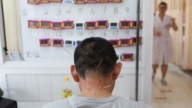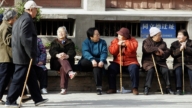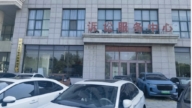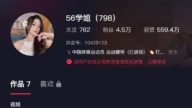【新唐人2014年08月07日讯】中共特色的户籍制度长期以来备受各界关注。日前,中共政府宣布,将对中国户籍制度进行改革,取消农业户口与非农业户口的区分,统一城乡户口登记制度,在大、中、小城市实行不同的农村户籍人口的落户政策,建立居住证制度等。专家表示,解决土地所有权是根本问题,否则,中国社会将长期陷入矛盾、冲突,不安定因素之中。
中共国务院7月24号印发的《关于进一步推进户籍制度改革的意见》中说,取消农业户口与非农业户口性质区分,和由此衍生的“蓝印户口”等户口类型,统一登记为居民户口。
中国金融智库研究员巩胜利表示,中国户籍制度改革已50年了,中国的公民仍然被分成上、中、下3个等分。
中国金融智库研究员巩胜利:“这一次习、李新政第一次提出把国民的居民证打通,但是对于农村人口的三座大山,教育、医药、还有社保这三座大山,好像没有提出任何的方案和解决的办法。”
1958年1月9号,中共颁布了第一部户籍制度——《中华人民共和国户口登记条例》,根据地域和家庭成员关系,将户籍属性划分为农业户口和非农业户口。
自1994年,中共相继在上海、深圳、苏州及北京等一些较大城市,实行“蓝印户口”,将投资购房、固定工作与户口拴在一起,不过这项政策于2002年4月被终止,改为使用“居住证”制度管理外来人员。
这次中共国务院的户籍改革意见提出,要统一城、乡户口登记制度,调整户口迁移政策,创新人口管理,建立“居住证”制度。
北京律师程海向媒体表示,全国人大1958年通过的《户口登记条例》第6条规定,户口要登记在经常居住地。户口本身是登记人口信息,它本来没有别的作用。国务院现在所谓的改革,实际上是对原来违法行为的略微纠偏,但整体上还是违法的。
北京律师程海:“首先它是违反法律的、违法的,户口的条令,户口法就是规定统一的居民户口。第二个它限制人的户口迁移,把户口变成是一个限制人的秘密工具,居住证设立本身也是违法的,中国居民是在任何国土上面都可以自由居住的,居民身份证严格说是有户口的居民它进行权利区别、进行限制,也是另外的一个违法。”
程海说,现在政府部门把户口的迁移作为敛财的工具,为自己谋取私利,公安部门的人参与卖户口,一个户口可以卖到几十万。
美国《纽约时报》说,中国户籍制度可能是“户口”的障碍,是毛泽东时代的产物,限制许多农村地区人口到城市永久定居,以及小地区的居民迁入如上海和北京这样的大城市。目地是不让饥饿的农民涌入城市。
前陕西电视台编辑马晓明:“实际上,这个户籍制度本身就是中共为了控制人民,特别控制生活和生产环境特别恶劣的农民,保留在农业的区域之内。”
2005年底至今,中共开始所谓改革户籍制度,先后有13个省、市、自治区取消了农业户口和非农业户口性质划分。
但专家表示,这些变化的意义不大,除非福利、住房等政策也发生相应改变,以克服持久的不平等。
不过,“清华大学人文学院”历史系教授秦晖说,最近十多年来很多地方已经出现了当局要强行取缔、取消农民户口而农民坚决不同意抗争的现象,按照现在的这个制度,这个农民的土地是和农业户口绑在一起的,所谓的取消农业户口,其实就是要把农民的土地给剥夺了。
巩胜利:“中国户口制的改革,这个方案里面没有解决农民的土地与户口之间的区别问题,土地,因为它强行把它列为国家所有,那么中国老百姓1358没有私人土地的权利,所以这个机制有它死点的根源,没办法解决。”
巩胜利表示,如果中共不解决土地私有权,这个问题势必成为中国社会矛盾的最大激发点和爆发点。
采访编辑/易如 后制/葛雷
Experts: Land Reform Is the Key Factor to
China’s Household Registration System.
The household registration system of Communist China
has raised widespread concerns for years.
Recently, the Chinese Communist Party (CCP) announced
China will reform the household registration system.
They will eliminate the distinction between agricultural and
non-agricultural households.
This will unify the household (huko) registration system.
The CCP will implement this in all sizes of cities, various
rural household settlement policies and establish the
residence permit system. Experts said that land ownership
is the fundamental issue.
Chinese society will have conflicts and social unrests
without resolution to this issue.
On July 24 the CCP State Council issued a statement;
“Opinions to Further Promote the Reform to the Household
Registration System.”
It said to eliminate the distinction between
agricultural and non-agricultural household accounts.
As a result, “Blue Print Household” and other types of
household accounts all became resident accounts.
China’s financial think tank and researcher Gong Shengli
said that the CCP has been tried to reform the household
registration system reform for 50 years, but China’s citizens
are still divided into the upper, middle and lower classes.
Gong Shengli, “this time the new regime of Xi Jinping
and Li Keqiang for the first time proposed to break
through the household registration system.
But there seems to be no plans or solution to the three huge
mountains of rural population:
Education, medicine and social security.”
On January 9, 1958 the CCP implemented its first household
registration system called the People’s Republic of China
Household Registration Ordinance.
It classifieds households as agricultural and non-agricultural
accounts based on geographical areas and family relationship.
Since 1994, the CCP implemented the “Blue Print Household”
in Shanghai, Shenzhen, Suzhou, Beijing and other large cities.
It ties real estate investment, and employment to households.
But this policy was terminated in April 2002.
Management of outside households was replaced by
the Residence Permit System.
The State Council stated to unify the city and rural household
registration system, adjust the household migration policy,
innovate population management and create the Residence
Permit System.
Beijing lawyer Cheng Hai told the media that Article 6 of
the 1958 Household Registration Ordinance passed by the
National People’s Congress states household accounts should
be registered at the habitual residence.
Huko itself was to register population.
It did not have other impact.
The State Council’s reform is actually to correct its illegal
behavior. But overall it’s action is still illegal.
Beijing lawyer Cheng Hai, “first, it is against the law. The
Huko regulations is a unified system of resident accounts.
It limits peoples’ movements. It was turned into a secret
tool to restrict people.
The establishment of residence permits is also illegal.
Chinese residents can live anywhere in the country at will.
The resident identity card system distinguishes people
and restricts people. It is also illegal.”
Cheng Hai said that the government used huko migration
as a money-making tool for their own personal gain.
Public security departments participate in selling huko.
One account can be sold for hundreds of thousands of yuan.
The New York Times stated that China’s Household
Registration System might be an obstacle to huko.
It was set up during Mao Zedong’s time.
It restricts rural population to permanently settle down in
cities, as well as limiting people moving from smaller cities
to big cities such as Shanghai and Beijing. Its goal was stop
hungry people from moving to cities.
Former Sha’anxi TV Station editor Ma Xiaoming,
“in fact this system is for the CCP to control people.
Especially to control farmers who live in harsh conditions
and keep them in the areas of agriculture.”
Since late 2005, the CCP began the so-called reform to
the household registration system.
Thirteen provinces, municipalities and autonomous regions
removed the differences between agricultural and non-
agricultural hukou accounts.
But experts said these changes do not carry much meaning,
unless there are parallel changes to welfare, housing and
other policies that remove inequalities.
Professor of history at College of Humanities of Qinghuan
University Qin Hui said that in the last decade, there have
been many conflicts between farmers and local authorities
who want to forcefully remove farmer’s rural huko.
According to the current system, land and farmers are tied
together.
To remove agriculture huko is to take away
land from the farmers.
Gong Shengli, “the reform of the hukou system
does not solve the problem of farmers’ land.
It forcefully takes all lands to the state.
Chinese people have no private land.
So this mechanism has a huge issue with no solution.”
Gong Shengli said that if the CCP does not resolve private
land ownership, it will become the largest social conflict.
Interview & Edit/YiRu Post-Production/GeLei





























